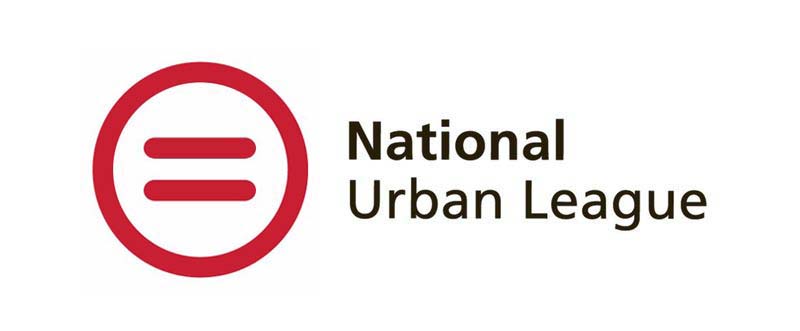Curious how you can switch up your study habits and make studying more enjoyable? Understanding your preferred learning style could help.
At Forage, we work with both students and employers to help students learn what it’s like to work in specific roles at top companies. We take into account various different learning styles and types to make sure every student can learn their best — which is why we’ve created a quiz to help you figure out your learning style.
In this article, you’ll understand one model of learning styles, take a learning style quiz, and learn about other psychological concepts to help you optimize your study sessions.
What Are Learning Styles?
Learning styles are preferences for different methods of understanding and retaining information. Theories about learning styles date back to the 1970s, and many models of learning styles exist.
>>MORE: What is lifelong learning?
In this article and learning style quiz, we’ll focus on only one of those models: the VARK model that Neil Fleming and Colleen Mills proposed in 1992. Fleming and Mills’ model includes four learning styles:
- Visual: A preference to learn via graphs, charts, flow charts, and other diagrams
- Aural: A preference to learn by hearing information spoken in lectures and discussions
- Read/Write: A preference to learn from information printed in words
- Kinesthetic: A preference to learn through experience or practical examples
According to the VARK model, people who favor two or more modalities equally or don’t clearly prefer any of them are multimodal.
Why Is it Important to Know Your Learning Style?
Why should you learn more about learning styles? Why take a learning type quiz at all?
Understanding your learning style can be the key to helping you learn more effectively and retain information long-term. Once you know how to learn better, you’ll:
- Find success in school: Practicing study habits that conform to your learning style can help you study better and perform better on exams, essays, and other assessments.
- Find more joy in learning: It can be frustrating to feel like you’re falling behind or can’t understand a concept. When you adjust for your learning type, you’ll remove friction from the study process and be able to study in a way that suits you.
- Get insight into your strengths (and weaknesses): You’ll know where you thrive and where you might need extra support when studying and learning. This can help you optimize your study process and get the help you need.
- Have skills to take with you to the workplace: Knowing how you work best is an asset in the professional world that can help you succeed in any workplace. You can articulate these skills in interviews, voice them when you’re joining your first team, and foster better collaboration when working with your first coworkers.
>>MORE: Take our “What Should I Go to College For?” quiz to learn what major could be right for you.
What Is My Learning Style? Quiz
Curious about your learning style? Take the learning style quiz below and sign up to find out which learning style you prefer and which study strategies are compatible with that style.
Other Psychological Concepts to Help Your Study Habits
Taking a learning style quiz isn’t the only way to apply psychological concepts to your studying. Consider these other concepts as well to optimize how you study — and improve life-long learning and professional outcomes.
Self-Efficacy
“Self-efficacy is generally defined in my research as the level, intensity, and strength of a person’s belief in their own ability to successfully execute a task or accomplish a desired goal,” says Terrell Strayhorn, professor of education and psychology and vice provost and interim dean of the school of arts and sciences at Virginia Union University.
In other words, if you believe that you’re capable of studying well enough to ace an exam, you’re more likely to do well on it.
Self-efficacy is goal-oriented and task-specific. Major drivers of efficacy include:
- Verbal persuasion
- Vicarious learning
- Social support
- Mastery experiences with feedback
>>MORE: Learn how to ask for feedback at work.
In the context of the exam example, verbal persuasion could mean your professor telling you she believes you’ll do well on the exam. One example of vicarious learning could be watching videos on YouTube of people studying or sharing study tips. For social support, meet with a study group and hype each other up before the exam. Investing significant time in studying and asking others how you can improve would be a mastery experience with feedback.
“If people want to improve their study habits, they need to boost confidence in their own study skills – repeat after me: ‘I am smart enough. I’m capable of learning. Good students study,'” Strayhorn says.
Sense of Belonging
“Literature shows that students’ sense of belonging is positively correlated with co-curricular engagement, grades, time on task, and overall well-being,” Strayhorn says. “Studying can be a solitary act, but the evidence is clear that, as humans, we are most at home in community with others.”
With this in mind, consider forming a study group to study with others. This can help you feel like you’re part of a community all working toward a similar goal.
Attention Span
“The adult attention span is 20 minutes; therefore, ‘cramming’ for long periods at the last minute may not work for everyone, especially if you don’t have a photographic memory,” Strayhorn says.
Don’t be too hard on yourself if you have trouble focusing for extended periods. Instead, plan to study in small increments with frequent breaks. The Pomodoro technique is a popular approach.
When we first learn to walk or run, we don’t learn it all at once; we do so gradually by strengthening muscles through practice.
“The brain works similarly,” Strayhorn says. “The brain is a muscle that has to be exercised and strengthened over time with small incremental study blocks/sessions.”
>>MORE: Read tips for making the most out of college.
Learning Style Quiz: The Bottom Line
Taking a learning style quiz can introduce you to study methods that align with your preferences, but remember: your results don’t fully capture the complexity of how you learn. If you prefer the aural learning style, that doesn’t mean you should put your handwritten notes through the paper shredder. Your learning preferences may vary for different subjects, and they may change over time.
“As a social psychologist and education researcher, my own scholarship has consistently shown that students’ aspirations, interests, preferences, and attitudes constantly change, grow, morph, shift, and develop over time, as they mature and environments vary,” Strayhorn says.
“So the goal, in my opinion, is NOT about matching a single instructional approach to a student’s current preferred learning style in some static, single moment. No, rather it’s about building diverse, engaging learning environments (i.e., classrooms, labs, schools) marked by a smooth blend of evidence-based instructional strategies that change and vary throughout the day, from unit to unit, or class to class,” he says.
Armed with the knowledge of your learning style, you’ll be able to adapt to whatever school or work environment you’re in — and be able to study, learn, and work better.
Ready to put your learning type quiz results into action? Try a free job simulation on Forage.
Image credit: Canva

